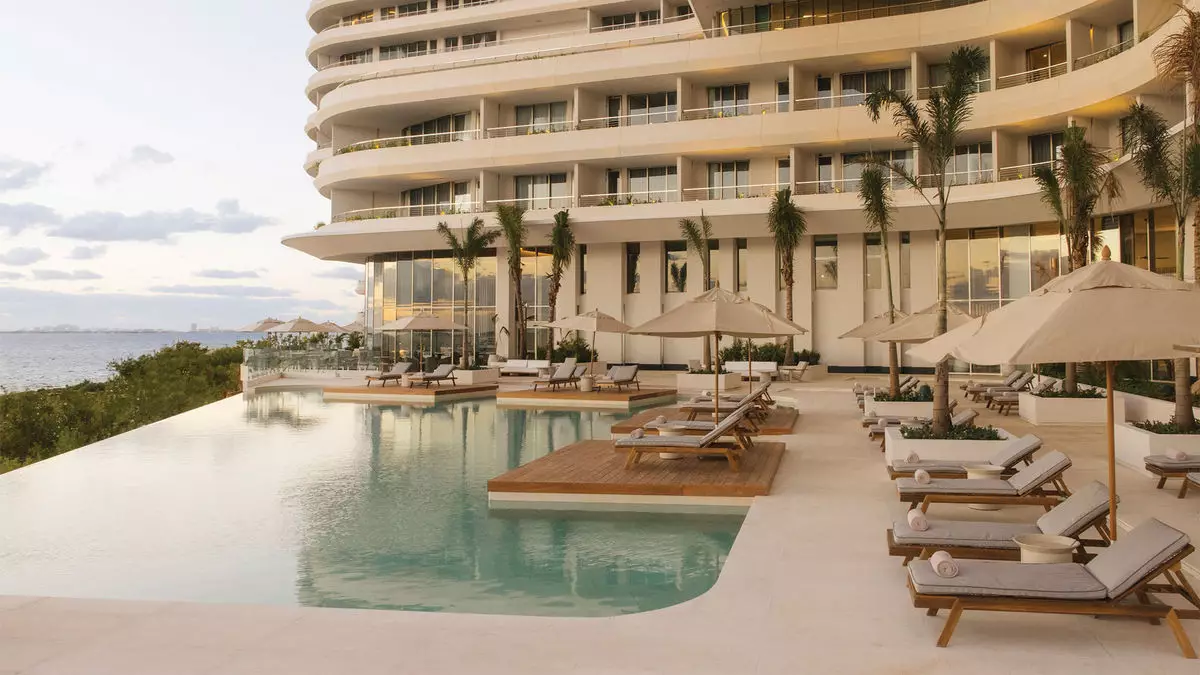In recent years, the luxury hospitality industry has entered a fierce competition centered around wellness, driven by a burgeoning demand for longevity treatments. The notion of enhanced health and an elongated lifespan is not merely a trend but is rapidly becoming an expectation within affluent circles. As facilities rush to offer cutting-edge medical-wellness solutions, the traditional boundaries of health and hospitality are increasingly blurred. This convergence has sparked conversations around the implications of prioritizing health through high-priced, sophisticated treatments.
Beth McGroarty, research director at the Global Wellness Institute, emphasizes the swift transformation in the wellness market, underscoring that medical-wellness clinics are now among the fastest-growing sectors within the industry. This movement reflects a societal shift, where affluent individuals are pursuing lifestyles that diverge from the conventional aging processes experienced by previous generations. The appeal lies in preventive medicine, with many seeking innovative ways to manage their health proactively rather than reactively.
As the allure of longevity treatments grows, so does the price tag associated with them. Many resorts now feature medical interventions with price points that would be considered exorbitant under other circumstances. For instance, while a standard luxury spa treatment may cost around $500, longevity treatments can easily reach monumental figures—$10,000 and upwards. This price inflation can be attributed to the growing wealth among the upper echelons of society, especially following the economic shifts prompted by the COVID-19 pandemic. Such economic dynamics have only intensified the focus on exclusive wellness offerings catering to a health-conscious elite.
For example, the Four Seasons Resort Maui has partnered with Next Health, making headlines with offerings like a $12,000 stem cell procedure and a comprehensive “longevity protocol” priced at a staggering $44,000. These developments raise ethical questions about accessibility and equity in healthcare, demonstrating a luxury market primarily focused on the wealthiest segments of society.
The competition among luxury resorts is demonstrating an unprecedented innovation in the wellness sphere. SBE’s collaboration with Tony Robbins to establish “The Estate” epitomizes this trend, with an ambitious goal of creating the world’s largest network of longevity-centric resorts and residential centers by 2030. This initiative is more than mere accommodation; it champions preventive medicine through advanced health diagnostics tools, including genome sequencing and MRI scans, to offer guests a tailored health management experience.
Similarly, established luxury brands are not lagging behind in the race. Six Senses, known for emphasizing a holistic approach to wellness, has ventured into the medical domain with its RoseBar longevity concept, aiming to integrate both mind and body health. Canyon Ranch has launched its Longevity8 program, a data-driven approach focusing on extensive diagnostics, which further illustrates the emphasis on personalization and technology in contemporary wellness practices.
Despite the ongoing investment and innovation within this luxury wellness space, challenges loom on the horizon. The burgeoning proliferation of medical treatments raises potential consumer confusion surrounding the meaning and efficacy of “longevity.” As McGroarty points out, terms like “longevity” and “wellness” risk becoming diluted, leading to ambiguity in product offerings. This dilution could undermine consumer trust, as potential clients may find it increasingly difficult to differentiate between genuine health advancements and mere marketing buzz.
Moreover, the increasing competition could lead to market saturation, where the overwhelming supply of services may surpass consumer demand. With many high-end facilities vying for a slice of the lucrative wellness market, brands must develop clear, distinguishable offerings to maintain their unique selling propositions. This complex landscape calls for utmost clarity and transparency in communication, so clients understand not just what they are paying for but also the potential outcomes of various treatments.
As the wellness arms race escalates, it will be crucial for players in the luxury hospitality industry to navigate this evolving terrain with a balanced view. While innovative health treatments are pivotal in attracting a wealthier clientele, the focus must also remain on integrity and informed consumer choice. It is vital that the industry captures the essence of wellness, which is fundamentally about improving quality of life—something that transcends mere financial investment.
In this intricate landscape, brands that successfully meld medical advancements with holistic wellness principles may very well thrive. In a world where health is becoming the new luxury currency, aligning ethical practices with groundbreaking innovation will determine the long-term success of entities within the luxury wellness domain.


Leave a Reply